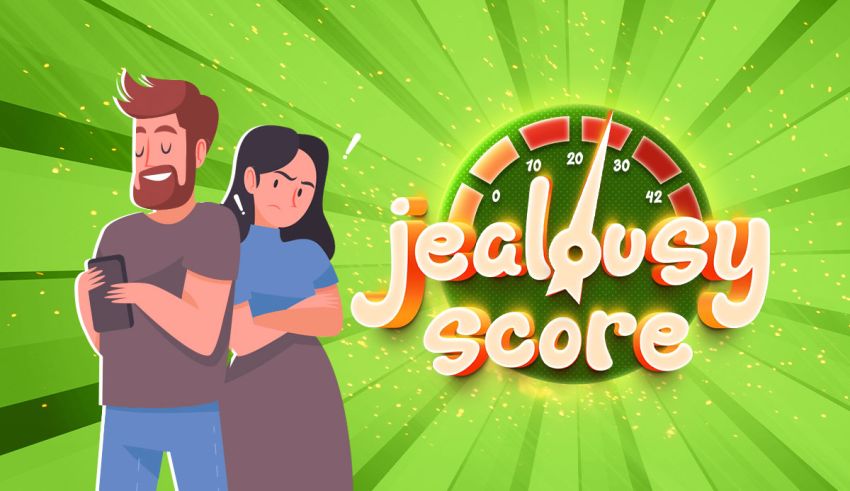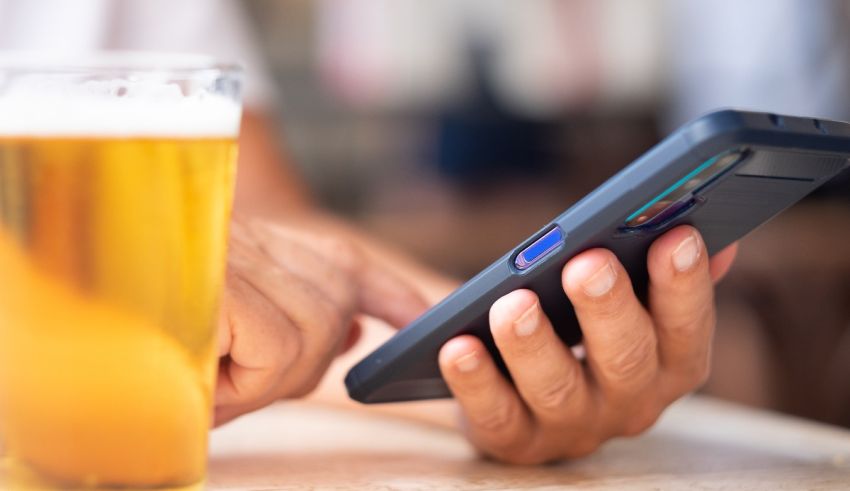
What Is a Jealousy Score?
A jealousy score is a number between 0 to 42 that explains how insecure or protective you are in a relationship, with higher scores demonstrating the intensity of emotions.
The outcome is calculated by the frequency, degree, and type of your reactions to triggers.
How to Interpret the Results?
Unlike a standard jealousy quiz with a yes-or-no result, the current test evaluates your jealousy in numbers.
Basically, the higher the score is, the more jealous you are. But here’s a detailed guide to interpreting the results.
| Jealousy Score | Meaning |
| 0-15 | Mild Jealousy |
| 16-24 | Anxious Jealousy |
| 25-32 | Retroactive Jealousy |
| 33-42 | Delusional Jealousy |
Mild Jealousy.
Scoring 15 or below on the test means you’re not a jealous person and do not overreact.
Anxious Jealousy.
If your score is between 16 to 24, you are an anxious jealous, a person who overreacts to the thought of betrayal even in the absence of any trigger.
Retroactive Jealousy.
If your score is 25 to 32, you’re on the retroactive jealousy spectrum. You’re obsessed with your partner’s love life and past relationships.
Delusional Jealousy.
A score of 33 or above on the test is a sign of delusional jealousy, the most destructive type of jealousy, which is considered psychotic.
Can You Measure One’s Jealousy?
The Multidimensional Jealousy Scale (MJS) is one of the scientific ways to measure one’s feelings of envy.
Studies like “Measuring Romantic Jealousy” by Elphinstone et al. have proved that you can score envy based on 17 items.
But there is a consensus that romantic jealousy involves a complex mix of emotions, thoughts, and behaviors. So, no model could measure it perfectly.
Our test evaluates three aspects of your reactions to increase the accuracy of the results: frequency, intensity, and type.
Frequency
How often you worry about a romantic rival or betrayal affects your score.
Jealous people struggle with anxiety and obsessive-compulsive thoughts more often than average people.
Intensity
The degree of upset you experience when triggered is another factor. The more manageable your emotions are, the less likely you are to be overprotective.
Type
People express their emotions uniquely. Your preference, though, affects the results directly. Aggressive reactions like shouting at your partner increase your score, while constructive ones like discussing your feelings decrease it.
Is It Bad to Score High in the Jealousy Test?
Kati Morton, a licensed therapist, says, “It’s obvious to think that jealousy is bad because some people lash out as a result of it. But if we don’t react out of jealousy and recognize what it is, we can actually use it as a tool or energy for good.”
When controlled, jealousy could be beneficial—both to you and your relationship.
Psychological benefits of disciplined jealousy:
· Jealousy could motivate you.
The desire to own what others do inspires you to work harder. In a mild dose, envy could be the fuel to achieve your goals.
· It could reveal more about your personality.
Digging deeper into your emotions to understand jealousy could expose unknown aspects of you. It could unearth your attachment style or reveal your self-esteem triggers.
Disclaimer: Read Before Participation
A jealousy score is not a replacement for a clinical diagnosis. Please, consider consulting a psychiatrist or a certified therapist to get one.
QuizExpo is not associated with any of the names/organizations mentioned in the test.






























